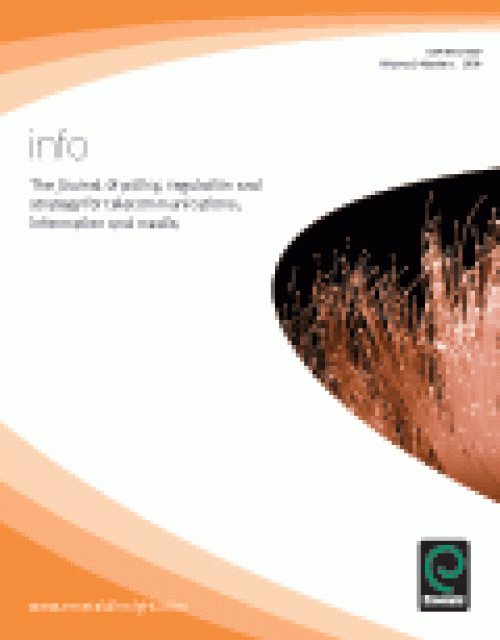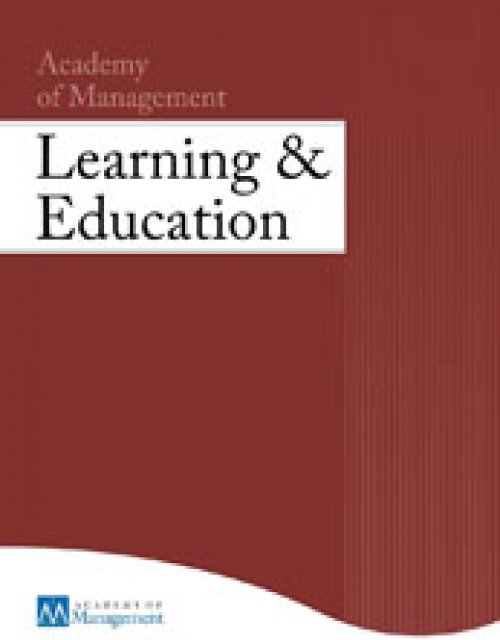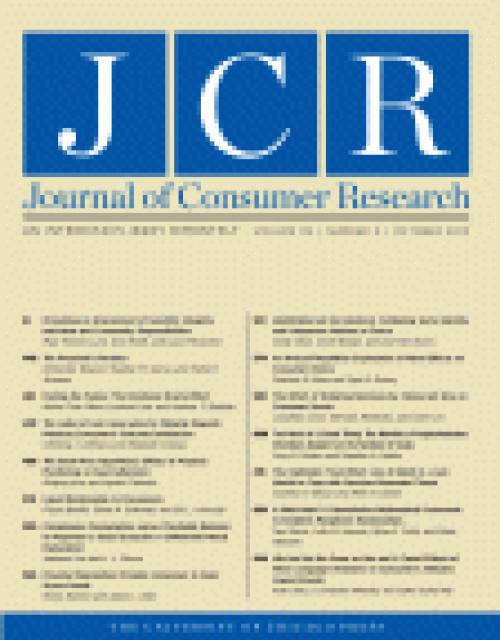Publication records
Subject(s)
Strategy and general management
Keyword(s)
consumers, marketing opportunities, mobile communication systems, telecommunications
The purpose of this paper is to explore the opportunities and challenges of serving low-income consumers in developing markets with mobile telecommunications.
With permission of Emerald
Volume
10
Journal Pages
5–12
Subject(s)
Economics, politics and business environment
Keyword(s)
cartels, leniency
JEL Code(s)
K21, L41, C81, D42
Volume
4
Journal Pages
89–113
Subject(s)
Human resources management/organizational behavior
Keyword(s)
executive education, leadership development, management development, identity
This essay concerns the design of transformational executive programs. A transformational program presupposes a change in behavior of the attending executive so that the latter becomes more effective in personal or organizational change. To understand what influences the transformational process three triangular conceptual frameworks (building on the short-term dynamic psychotherapy tradition) are presented: the mental life triangle, the conflict triangle, and the relationships triangle. The first shows that cognitive and emotional processes need to be taken into consideration to create changes in behavior. The second describes the sources of thoughts and feelings that may prompt anxiety and cause defensive reactions prohibiting change and productive use of talents. The third relationships triangle explains how an individual's previous experiences create patterns of response that are repeated throughout life and can become dysfunctional. Five major challenges in program design are also examined: selecting participants; identifying the focal issue on which participants need to work; the creation of a safe transitional space that enables the change process; using the group dynamic to foster transformation and to arrive at internalization of the change process; and the educational implications for faculty, facilitators, and coaches.
With permission of the Academy of Management
Volume
6
Journal Pages
375–387
ISSN (Online)
1944-9585
ISSN (Print)
1537-260X
Subject(s)
Strategy and general management
Keyword(s)
trust, willingness to rely on trust, partnership
This paper is concerned with understanding and identifying factors that affect the willingness of business executives to rely on trust as a governance mechanism in the context of partnerships. An instrument was designed (a short business case study followed by a questionnaire) to collect data on how different executives react to the objective conditions of a business deal. Through the questionnaire, individual willingness to rely on trust, individual reaction to traditional types of trust, and sensitivity to other situations that evolve during the deal were measured. It is shown that willingness to rely on trust varies amongst executives and is not fully determined by the conditions of a deal. Furthermore, consistent with a psycho-sociological approach to trust, it is also shown that demographic factors are related to propensity to rely on trust, and that across nationalities, the sensitivity to factors affecting trust such as partner interaction and external information differ.
© 2007 The Authors. Journal compilation © 2007 Blackwell Publishing Ltd
Volume
16
Journal Pages
317–329
ISSN (Online)
1467-8691
ISSN (Print)
0963-1690
Subject(s)
Strategy and general management
Keyword(s)
strategic innovation, value innovation, blue ocean strategy, business strategy, competititve strategy
© 2007 The Author Journal compilation © 2007 London Business School
Volume
18
Journal Pages
11–17
Subject(s)
Management sciences, decision sciences and quantitative methods
Keyword(s)
merger control, European Commission, political economy, lobbying, stock market data
JEL Code(s)
L4, K21, C25, D78
The objective of this paper is to investigate the determinants of European Union (EU) merger control decisions.We consider a sample of 167 EU mergers between 1990 and 2002 and evaluate their competitive consequences by the reaction of the stock market price of competitors to he merging firms. We then account for the discrepancies between the actual and optimal decisions as indicated by the stock market in terms of the political economy surrounding the cases. Our results suggest that the commission's decisions cannot be solely accounted for as protecting consumer surplus. The institutional and political environment
does matter. As far as influence is concerned, however, our data suggest that the commission's decisions are not sensitive to firms' interests. Instead, the evidence suggests that other factors-such as market definition and procedural aspects, as well as country and industry effects-do play a significant role.
With permission of the University of Chicago Press
Volume
50
Journal Pages
455–489
Subject(s)
Technology, R&D management
Keyword(s)
technology
In this article, we examine why it is difficult to induce firms to form Research Joint Ventures (RJVs). We examine various incentives and disincentives for RJV formation by estimating an endogeneous switching model using data from the US National Cooperative Research Act. The empirical findings support hypotheses that firms of different sizes have disincentives to form RJVs and that cost-sharing is an important incentive for RJV participation.
© The Author(s). Journal compilation © Royal Economic Society 2007
Volume
117
Journal Pages
1122–1144
Subject(s)
Marketing
Keyword(s)
consumer choice, consideration sets, decision making
Superfluous choices are unnecessary choice steps that could be removed without affecting the final choice context and outcome. They are introduced in this article in order to study the mere effects of consumer participation. Superfluous choices have no immediate impact on the chosen option but strongly increase consumers' propensity to persist with the same option on future choice occasions. Four experiments that isolate and investigate this indirect effect and its moderatorshighlight the impact of consumer participation that derives from a perception of greater deliberation and fluency in decision making.
With permission of the University of Chicago Press
Volume
33
Journal Pages
454–460
Subject(s)
Marketing
Keyword(s)
business markets, consumer behavior, economic theory, rationality, rational behavior, rational choice
Volume
1
Journal Pages
79–99
Subject(s)
Economics, politics and business environment
Volume
4
Journal Pages
30–32


